Human Resources (HR) is one of the most important areas of business development.
Unfortunately, as black entrepreneurs, we can get stuck in the realm of Do-It-Yourself, and often deploy HR strategies with a bootstrapping mentality that can hurt the business. So when demand and growth opportunity increase or our business is experiencing growing pains, we stunt our business growth because we don’t have the staff resources we need to produce and deliver at higher volumes. The result is missed revenues, untapped opportunities, and CEO burnout…
Hiring and managing a team isn’t easy. It can be as complex as people are diverse.
So we asked members of Sistahbiz, who are employers, to spill the tea. They share their most actionable team management tips as well as turning points in their personal business growth. We think you’ll love what they had to say.
1. Just Because You Can Do It, Doesn’t Mean You Should
Tiffany E. Slater, Ph.D., SHRM-SCP

Dr. Tiffany Slater is the CEO and founder of HR TailorMade. Her company offers remote, expert-level HR services on everything from hiring to policy creation for large and small businesses. Here’s what she had to share with her fellow black women entrepreneurs:
“STOP long enough to realize that you need experts to help you. STOP searching to the end of Google, DIYing your business, and hire someone to do what they are EXPERT at so that you can be an EXPERT in your own lane.
Only 2.3% of black-owned businesses have employees. I believe it to be true because many are convinced that they can do it all themselves or that they don’t make enough money to pay others. If you invest in an amazing business coach like Makisha, you can structure your business in a way that allows for growth and hiring others.
When you have employees, the most important things you can do are to:
- Create a work environment that sparks joy. Make sure your team wants to continue working for you as a result of the joy they experience at work. Remember, money does not equal joy for everyone.
- Take care of yourself as a leader. Invest in leadership development for yourself (in addition to CEO development and industry-specific development). Don’t assume that because you are a nice person you know how to lead others.
- Get an HR Friend and stop taking your HR needs for granted or DIYing your policies and practices. HR is like insurance. You may hate paying for it but when you need it, you are glad you did. Protect your business, assets, and team by securing an HR Friend.”
2. Hire Someone Who Isn’t Afraid to Talk About Their Mistakes

Ashley Butler is the CEO and founder of Virtually Imperative & Imperative Recruiting. Virtually Imperative assists solopreneurs with administrative duties and virtual assistance for the necessary but painstaking behind-the-scenes work of running a business. Imperative Recruiting is a recent expansion of that business where her team helps to place candidates with companies in the health and tech space.
Enjoy Exclusive Privileges!
Here’s what Ms. Butler had to say about managing your mindset and your team:
“I was initially very reluctant to hire my first employee because I didn’t have a consistent amount of hours I could provide so I started with contractors on a very as-needed basis. I had to realize that I had a fear of delegating to a team because I was so concerned about where my next client was coming from, I had to thoroughly weigh out all options and it ultimately boiled down to me changing my thinking from I was failing to I was growing and could create a new opportunity for someone to advance in their career, this was a game changer for me!
I knew it was time to expand when I could no longer meet client deliverables, keep up with the backend administrative tasks AND maintain a healthy work/life balance. This was a very hard realization to come to. I felt I should be able to handle everything in my business because it was mine. But taking the step back to accept it was ok to expand was one of the biggest personal accomplishments as an entrepreneur.
As a recruiter, there are so many things to look for when hiring a team member. However, I think one of the most important characteristics I look for when hiring is someone who is not afraid to talk about mistakes they’ve made and how they were able to face them. We all are going to come up short sometimes and it can be scary to talk about that in an interview setting but honesty is so important when building a team that you feel you can trust to deliver and know when something is going wrong they can tell you!
It was very important for me to incorporate an empowering company culture and to be transparent. In previous roles, I felt I didn’t know what was going on or intentionally not given the full details of things which lessened my chances of success. I strive to provide a company culture that is based on accountability, respect, and autonomy.”
3. Onboarding Can Make or Break Your Brand

Doni Aldine is an expert in cross-cultural media and marketing. She is the Founder and Editor-in-Chief of the magazine CULTURS, which celebrates cultural, ethnic, and racial diversity across the globe. She weighs in on the signs it’s time to expand and how to hire for growth.
“I knew it was time to expand because I had big goals and am very aware I cannot do everything. Some things you don’t have the skillset for, others you don’t have the passion for — whatever that may be, we always can accomplish more together than as an individual as long as everyone is moving forth with the same understanding and in the same direction.
When opportunities are coming, yet you feel like you’re constantly working yet not achieving – it’s time to assess why and vet people who are good or can be trained in important areas. Make sure you work in your sweet spot – the things you’re great at and that no one else can do. Everything else can be delegated, and to delegate, you need a team.
I believe onboarding is the most important aspect of hiring. It does a number of things for you:
1) Explain to new employees what to expect, what kind of company they’re working for, how you are set up. It’s the first introduction to the brand after being “on the outside.” The experience can make or break your brand and what the new hire thinks they know about you.
2) It will make them feel welcome, depending on how you have it set up. Do you have a welcome package or if remote, a note, letter, or email they will receive? Is there an introduction to the team – do people have a way to acknowledge they are now part of the team and offer to help, as well as make connections?
3) It provides the new hire with formal written expectations that they always have access to and can return to so everyone is on the same page. They also should have their written job description on hand.
4) It shows the company’s standard operating procedures and where to find them for reference.
5) For us, the onboarding also is an opportunity for us to see how well the new hire is integrating – are they a good fit for us, are we a good fit for them? It’s the final port before both sides dive deeply into work and can be a good time to truly assess how you’ll work together.
4. Trust Your Team to Problem-Solve On Their Own

Sheila Ellis-Glasper is the founder and CEO of SEG Media Collective. After working as a news reporter, an entrepreneur with celebrity clients, and a social media director for Kansas State University, she set out to run her own marketing shop. SEG Media helps businesses expand their reach to local and global audiences using digital and traditional media outlets.
Here’s what Mrs. Glasper had to say was most important for running an effective remote team:
“The most important quality I look for in hiring is critical thinking and problem-solving ability. My team works in a remote environment and being able to problem solve on your own is major. Of course, the team and I are there to support but throughout the day, issues come up and you need to be able to handle those issues without a lot of hand-holding in order to be successful in a fast-paced digital media environment.
Critical thinking is a skill that is difficult to teach and is very much needed in our marketing work. You have to be able to break the mold, think critically and creatively to solve problems for clients, and ultimately get results.
When I worked in corporate, a lot of times I dealt with microaggressions and the feeling of not being good enough. My work would be questioned even though I received high compliments from my peers and clients it was never good enough for my director. So when I created my own company, I wanted to make sure my team understood they are valued and I trust their talent. I wanted them to always feel included and to be informed about changes in the company. Ultimately, I wanted to create an encouraging environment for my team to thrive in.”
Invest in Your Business Expansion
The recurring theme among these black women entrepreneurs is that great teams are key to business growth.
If you want to go fast, go alone. If you want to go far, go together. We’ve all heard that quote, but nowhere else is it more important than in building a business. As an employer, you’ll need HR consulting and a network of entrepreneurs who are also employers who are available for peer consultancy and collaboration. If you haven’t already, join Sistahbiz and find like-minded, business-savvy women across state lines as we talk through the challenges of being an employer, hiring, inspiring and managing teams, driving performance, and HR compliance. Become a member of Sistahbiz today.

